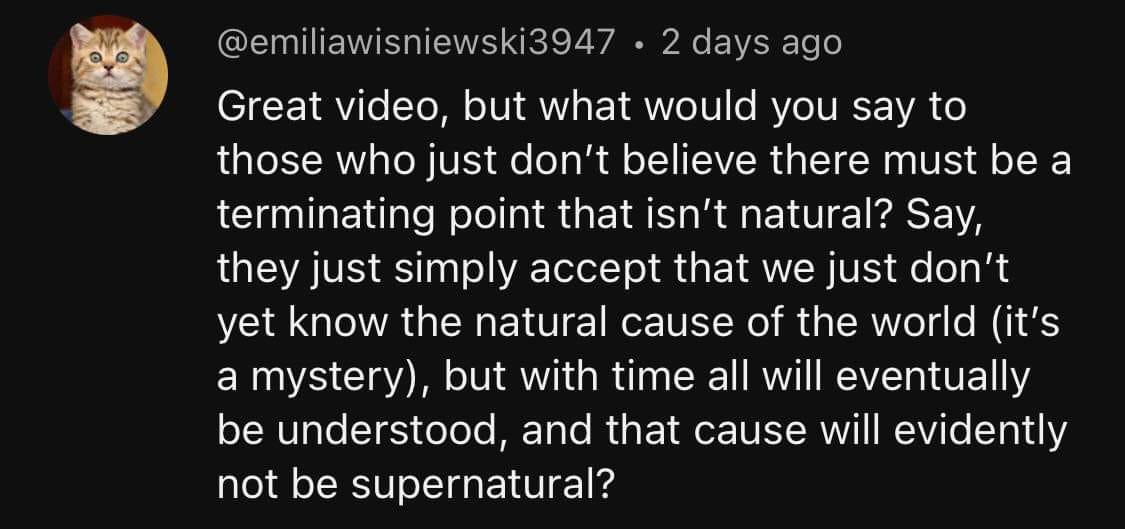Why Not a Natural Fundamental Entity (vs God)?
Emilia asks the following question in response to a recent interview clip I shared.
My response?
Well, I would say quite a few things, which I do in my book : )
But ultimately it depends on what argument for God we’re considering. If, for example, we’re looking at St. Thomas’s approach, we should mention that Aquinas gives reason to think only that in which essence and existence are identical can serve as the fundamental explanatory entity, and upon conceptual analysis, such an entity would be quite unlike any natural thing in being non-multipliable (“uniquely unique”), qualitatively unbounded, purely actual, omnipotent, wholly good, etc. And this we can know regardless of what future empirical discoveries may reveal about the natural order, since the argument is revealing the necessary condition for there to be a natural order (that is, a realm of multipliable, changing, finite, metaphysically composite natures) in the first place.
FWIW, this argument is developed in TBAFG.
If we are looking instead to Barry MIller, our boi tells us that natural entities (taken as anything with a finite measure, not qualitatively unbounded, and ontologically constituted of a what-ness element and an is-ness element), then by themselves these are contradictory structures given the deep mutual interdependence of their ontological parts. The contradictory implication of any actually existing natural being can only be lifted if there is something that ultimately funds the unity of their metaphysical constituents, which ultimately has to be a metaphysical simple which (again, in line with Aquinas) is something that just is existence itself or existence alone. This argument is quite technical and different from Aquinas’s but once again gives a principled reason why the terminating entity cannot be a natural entity.
There are other approaches still. For example, epistemological, where one might wish to highlight the problem of irrelevant differences among any conceivable natural entity posited to serve as a fundamental explanatory entity (for the reason that any natural thing will ultimately bear contingency implying attributes, and if one just strips all those attributes away and calls the remaining entity natural, then I would say we’ve conceptually arrived at the same fundamental entity, and are just being quirky with our use of the term natural!), and how this leads to skepticism.
Finally, one might wish to give an abductive argument for God as the best ultimate explanation versus any naturalistic hypothesis. Again, this approach is developed in the second half of my book, for those interested.


